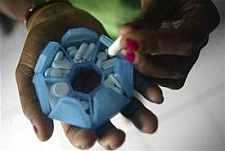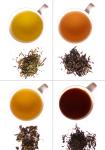The prices of essential medicines may drop, as the National Pharmaceutical Pricing Authority (NPPA) has made significant changes in its norms to rationalise price approvals. NPPA would soon issue new guidelines for price approvals and ask companies to provide a specific break-up of their working capital, employed capital, etc.
NPPA would soon issue new guidelines for price approvals and ask companies to provide a specific break-up of their working capital, employed capital, etc.
The regulator has decided to rationalise the maximum allowable post-manufacturing expenses (MAPE). Also, it would not allow 100 per cent mark-up in all cases, as was the practice so far, an official privy to the development told Business Standard.
The official said these decisions were taken at an NPPA meeting this week, and the authority would issue a notification in this regard in two to three days.
NPPA regulates the prices of 74 bulk drugs and formulations containing one or more of these drugs, under the Drugs Price Controller Order, 1995. Prices of these medicines are capped according to the cost-plus formula, based on input price changes data. However, the new guidelines would mandate companies to provide various other break-ups, which would be verified by NPPA. For instance, pharmaceutical companies may now have to provide details of how much of their facility is being used for the drug for which they are seeking a price rise. "The idea is to fine-tune the methodology of implementing the cost-plus formula, as we feel various factors need to be evaluated before allowing a revision," the official said.
Through the current system, NPPA has been approving up to 100 per cent MAPE in all cases. However, with the new guidelines in place, companies would have to provide actual data on post-manufacturing expenses, based on which NPPA would approve MAPE (not more than 100 per cent).
According to the official, the move is aimed at pricing drugs in a more reasonable manner and ensuring these are affordable for the common man.
Experts say the development is crucial, especially since the government is keen to bring more drugs under the price-control ambit. The government is deliberating on the proposed National Pharmaceutical Pricing Policy, which seeks to bring 348 bulk drugs and 652 specified dosage formulations under direct price regulation.










